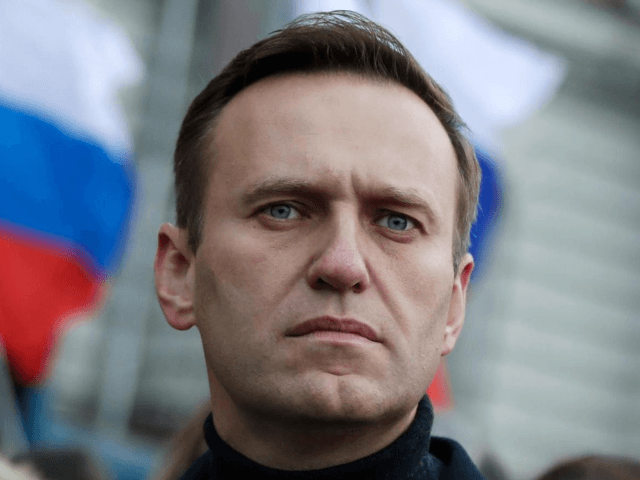The Russian government said on Monday there is no need to investigate the “illness” that suddenly befell opposition leader Alexei Navalny last week, and accused German doctors of “rushing” to announce that traces of poison were found in his system.
Navalny became severely ill and lost consciousness on a flight from Siberia to Moscow on August 20. He was treated at a hospital in Siberia, where doctors claimed they could find no evidence he was poisoned, as alleged by his family and supporters.
Several other countries offered to examine and treat him and a non-governmental organization based in Germany swiftly dispatched a medical flight to retrieve him. The doctors in Siberia at first claimed the comatose Navalny was too sick to be moved, but they relented and allowed him to be transported to the Charite Hospital in Berlin.
Navalny’s German doctors announced on Monday that they found toxic substances in his system and would conduct further tests to determine the exact nature of the toxins. The German government said it was “fairly likely” he had been poisoned and provided him with bodyguards.
Kremlin spokesman Dmitry Peskov responded to these developments by accusing the Germans of jumping to conclusions and rebuffed calls for Russian authorities to investigate a potential attack on Navalny.
“We don’t understand why our German colleagues are in such a hurry to use the word ‘poisoning,’” Peskov said on Monday.
“If the substance is identified and if it is determined that it is poisoning, then, of course, this will be a reason for investigation,” he added.
Peskov dismissed allegations that Navalny was poisoned, on orders from the Kremlin and Russian President Vladimir Putin, as “idle talk” and said, “We have no intention of taking them seriously.”
Moscow’s Bureau of Forensic Medicine also said it was “premature” to conclude Navalny was deliberately poisoned, arguing that some “chronic diseases” can produce elevated levels of cholinesterase inhibitors similar to toxins like pesticides and nerve gas. The hospital in Siberia concluded Navalny might have been suffering complications from low blood sugar, a diagnosis roundly rejected by his supporters.
A Russian newspaper called Moskovsky Komsomolets issued a report over the weekend, translated by Germany’s Deutsche Welle, that said agents of Russia’s FSB security service “followed Navalny and closely monitored his movements on CCTV” during his trip to Siberia. Among other things, the report suggested the FSB was monitoring what he ate and drank.
This led some Navalny supporters to conclude he was either poisoned by the FSB, attacked by someone else while FSB agents looked the other way, or attacked during the brief windows of time at the Siberian airport or aboard the plane when he was not under close surveillance.
Navalny spokeswoman Kira Yarmysh responded to the Moskovsky Komsomolets report by saying “we were perfectly aware” of the surveillance on Navalny, but added she was surprised FSB officials were willing to describe their activities in detail to the Russian newspaper.
Yarmysh did not think much of the Kremlin’s breezy dismissal of poisoning allegations or its refusal to investigate.
“It was obvious that the crime would not be properly investigated and the culprit found. However, we all know perfectly well who he is,” she responded.
The United States joined the calls for a full investigation of Navalny’s plight on Tuesday. U.S. Ambassador to Russia John Sullivan said the “new information” provided by doctors in Berlin “necessitates an immediate, comprehensive, and transparent investigation by the Russian authorities that holds the parties behind this act responsible.”

COMMENTS
Please let us know if you're having issues with commenting.